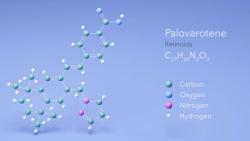
OR WAIT null SECS
- About Us
- Advertise
- Contact Us
- Editorial Info
- Editorial Advisory Board
- Do Not Sell My Personal Information
- Privacy Policy
- Terms and Conditions
© 2026 MJH Life Sciences™ , Pharmaceutical Technology - Pharma News and Development Insights. All rights reserved.
BASF Opens GMP Manufacturing Facility in Michigan
The new facility offers cleanroom packaging and high-sensitivity analytical testing.
BASF announced on June 17, 2025 that it has opened a good manufacturing practice (GMP) facility in Wyandotte, Mich. as part of the company’s commitment to providing a reliable supply of bioprocessing ingredients and excipients to the biopharma and pharmaceutical industries. The facility expands on BASF’s existing network of GMP sites. BASF Pharma Solutions is a manufacturer of excipients and APIs.
The new facility will feature state-of-the-art cleanroom packaging and high-sensitivity analytical testing capabilities. These will allow the company to customize chemistries for product development and provide more tightly controlled parameters beyond compendial limits and a validated control system, according to a press release (1).
“Our new GMP Solution Center exemplifies BASF’s dedication to understanding and addressing the evolving needs of our customers in both the biopharma and pharmaceutical industries,” Marion Kuhn, vice president of business management, BASF Pharma Solutions, said in the press release. “This state-of-the-art facility will play a fundamental role in enabling us to collaborate closely with our customers worldwide on product development and GMP manufacturing in ways that are unique to the industry, further strengthening our position as an innovator in the pharmaceutical sector.”
“Wyandotte’s new GMP Solution Center is a key example of BASF’s commitment to innovative excellence,” added Benjamin Knudsen, vice president of research North America at BASF Corporation. “This expansion not only showcases our dedication to developing customized solutions, but it also highlights our ability to adapt and innovate in response to our customer’s needs. Together, we are paving the way for new innovative solutions.”
The quality of pharmaceutical ingredients is imperative for ensuring a robust and safe drug supply chain. Poor-quality APIs that do not meet standards may destabilize drug formulations, creating quality control problems and regulatory actions that result in drug recalls (2).
“From a supply chain perspective, poor-quality APIs increase the likelihood of production interruptions, which disrupt the supply to the market,” Qixuan Lu, vice-president of Process Chemistry at BioDuro, said in an interview about API quality with Pharmaceutical Technology® (2). “Because of the poor-quality API, additional quality control measures become necessary, driving up costs and diminishing profit margins. If such issues arise repeatedly, they can harm a company’s reputation and undermine market confidence in its products. Beyond these commercial setbacks, manufacturers also face considerable legal and regulatory risks if they fail to meet the standards required for pharmaceutical quality and patient safety.”
In a Drug Digest video interview, experts discussed key trends impacting small-molecule APIs and excipients, the importance of supply chain resilience, ways in which advanced manufacturing approaches can prove beneficial, and potential hurdles facing companies seeking to secure their small-molecule API and excipient supply chains (3).
Visit PharmTech.com for more on API and excipient quality and manufacturing.
References
- BASF. BASF Strengthens Its Commitment to the Biopharma and Pharmaceutical Ingredients Industries through a New Investment in North America. Press Release. June 17, 2025.
- Haigney, S. Poor API Quality Threatens a Healthy Supply. Pharmaceutical Technology 2025 49 (4). https://www.pharmtech.com/view/poor-api-quality-threatens-a-healthy-supply
- Thomas, F. Drug Digest: Securing the Supply Chain for Small-Molecule APIs and Excipients. PharmTech.com. Oct. 4, 2024. https://www.pharmtech.com/view/drug-digest-securing-the-supply-chain-for-small-molecule-apis-and-excipients



